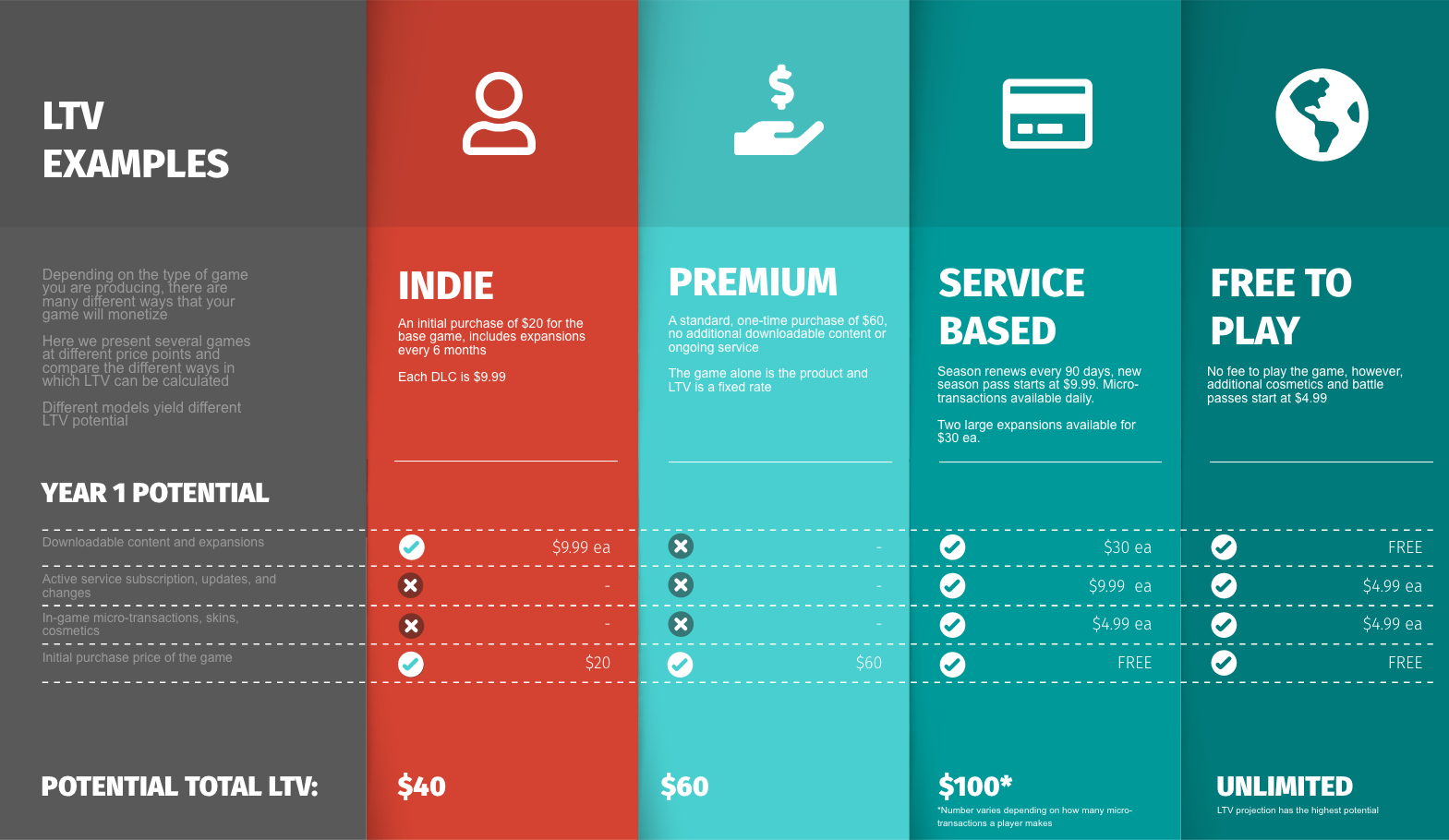Lifetime value for PC and console games
LTV is the single most important revenue metric for any game. This number encapsulates how much money a player will pay you over the course of their relationship with your game. This includes everything from the purchase price, to DLC, to in-game transactions, to pre-orders for your next title.

Takeaways
- LTV is the single most important revenue metric for game publishers.
- Measure everything. Income from each of your revenue streams goes towards LTV, take this into account when creating your business model.
- Smart games are exploring monetization opportunities beyond the release
What is LTV?
LTV is the estimated total revenue of an individual player for a specific game or product. This definition encompasses any purchase a player makes towards your game or service and is a fundamental value for both premium and free-to-play titles. With many PC and console games shifting to subscription-based models like season passes with in-game cosmetics, LTV continues to grow and monetize beyond the first sale and is a vital statistic for any studio regardless of size.

As you begin to examine revenue streams separate from the baseline product, LTV potential grows almost immediately.
What model is right for you?
Consider the following: What data do you have available? What type of game are you marketing? And how can you maximize your resources? As your game and community grow, the more in-depth you can go with this information. Knowing your LTV unlocks the ability to make informed decisions and smart investments.
What does LTV tell you?
As your LTV modeling becomes more complex, the more you begin to understand the intricacies of your business, your player’s habits, and often find new ways to liven and expand your community.
Extensive measuring on both the effects of in-game changes, quality of life updates or DLC, and external factors, allows your modeling to become much more predictable, making it easier to plan the next content update or increase UA spend. As the industry matures, smart games continue to implement monetization methods beyond the initial release.
About us
At Gamesight, we help PC and console marketers implement performance marketing techniques for their games. If you are seeking help setting up and measuring your campaigns, working with influencers, or would like to simply talk with us about this article, please reach out on our website!

